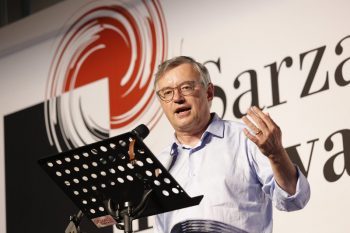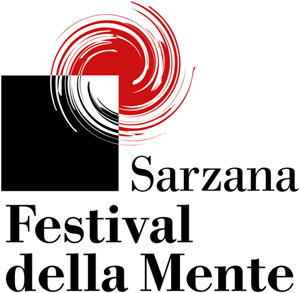2011 Programme
Evento n.24
Alessandro Barbero
How did Middle Ages men think? The merchant
Dino Compagni was a Florentine merchant. To him, the city and its prosperity were the only important things. People belonged to two groups: good people who worked for the common good, and bad people. He admired gentlemen who would risk their lives in battle but feared their violence, and found it right that they should be excluded from the city’s government. When he spoke of the Pope or the King, he would lower his voice as such prominent people intimidated him and he hardly dared to criticize them. At one crucial time in the history of Florence, lots were drawn and he found himself charged with political responsibilities: he was so surprised that he started writing—in Italian, for he knew no Latin. His Cronica depicts the Florence of Dante’s time as viewed through the eyes of a man of the people, the kind that only in Italian city-states of the period could find themselves involved in government by chance.
Alessandro Barbero, historian and writer, is Professor of Medieval History at the University of Eastern Piedmont and Vercelli. He contributes to the programmes “Passato e presente” and “a.C.d.C.” aired on Rai Storia. Since 2023 he has been the star of the programme “In viaggio con Barbero”, on LA7. In the same year he started for Chora Media “Chiedilo a Barbero”, a podcast in which he answers questions on history sent in by listeners. Among his publications: “Le parole del papa” (2016), “Caporetto” (2017), “Dante” (2020), 2All' arme! All'arme. I priori fanno carne” (2023), published by Laterza; “Gli occhi di Venezia” (2011) and “Le Ateniesi” (2015), published by Mondadori; “Costantino il vincitore” (Salerno, 2016); “Il divano di Istanbul” (2011), “Alabama” (2021), “Poeta al comando” (2022) and “Brick for stone” (2023), published by Sellerio.
Evento n.6
Zygmunt Bauman
Reflections on the notions of community and network, on social networks and Facebook

Evento n.14
Gian Carlo Calza
Different, eccentric, extraordinary: aesthetics and creativity between Asia and the West

Evento n.26
Franco Borgogno
In other people’s hearts and minds. A psychoanalyst between tradition and creativity

Evento n.37
Sonia Bergamasco, Fabrizio Gifuni
A quiet sunny day. Attilio Bertolucci and Pier Paolo Pasolini, a friendship in verse






















